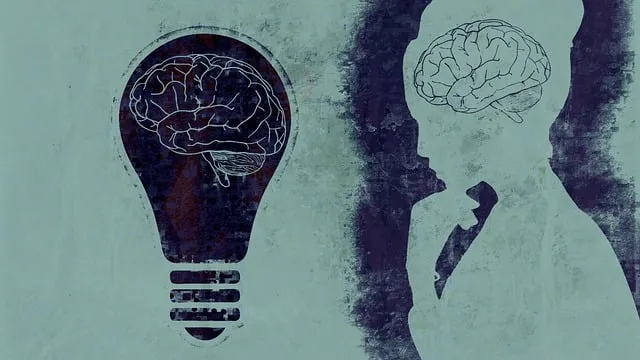Crisis Intervention Teams (CITs) are trained to swiftly and empathetically manage emotional crises. The Denver Kaiser Permanente mental health department offers extensive CIT training, integrating mindfulness, compassion cultivation, and conflict resolution techniques. Their programs set a national standard for crisis intervention, empowering professionals to support individuals in distress. For more information, use the Denver Kaiser Permanente mental health department phone number.
“Crisis intervention teams (CITs) play a pivotal role in managing mental health crises, offering immediate support, and preventing escalations. This article explores these specialized teams and their profound impact on communities. We shine a spotlight on the Denver Kaiser Permanente Mental Health Department, renowned for its innovative CIT training programs. By examining their approach, we uncover essential components that contribute to effective training, including real-time scenario simulations and evidence-based practices. For more information on their training initiatives, visit the Denver Kaiser Permanente mental health department phone number.”
- Understanding Crisis Intervention Teams: Their Role and Impact
- Denver Kaiser Permanente Mental Health Department: A Leading Force in Training
- Essential Components of Effective Crisis Intervention Team Training Programs
Understanding Crisis Intervention Teams: Their Role and Impact

Crisis Intervention Teams (CITs) are specialized groups designed to respond swiftly and effectively during moments of crisis, whether it’s a traumatic event or an individual in distress. These teams play a pivotal role in mental health care, often serving as the first line of defense for those facing severe emotional or psychological turmoil. With members trained in various disciplines, such as nursing, psychology, and social work, CITs provide immediate support, de-escalation techniques, and crisis resolution strategies.
In Denver, for instance, the Kaiser Permanente mental health department offers comprehensive training programs that empower individuals to handle critical situations with empathy and proficiency. Their phone number, readily available through a simple online search (e.g., “Denver Kaiser Permanente mental health department phone number”), serves as a lifeline for those in need, connecting them to professionals who can guide them through the most challenging of circumstances. Beyond crisis management, these programs also delve into compassion cultivation practices and conflict resolution techniques from the Mental Wellness Podcast Series Production, ensuring that participants are equipped with tools to enhance both personal and professional interactions.
Denver Kaiser Permanente Mental Health Department: A Leading Force in Training

The Denver Kaiser Permanente Mental Health Department has emerged as a leading force in crisis intervention team (CIT) training programs. With a robust curriculum focused on empowering healthcare professionals and first responders, they equip individuals with the tools needed to effectively manage mental health crises. Their comprehensive approach integrates evidence-based practices, including mindfulness meditation and empathy building strategies, to enhance stress management skills.
This pioneering department offers specialized training sessions that cater to diverse needs, ensuring participants gain practical knowledge and confidence in handling delicate situations. By fostering a culture of resilience and compassion, Denver Kaiser Permanente is not only transforming lives within its community but also setting a benchmark for mental health crisis intervention across the nation. To learn more about their programs and get in touch with their team, interested individuals can reach out to the Denver Kaiser Permanente Mental Health Department using their dedicated phone number.
Essential Components of Effective Crisis Intervention Team Training Programs

Effective crisis intervention team training programs are multifaceted and essential for organizations aiming to support their employees’ mental health. One key component is Compassion Cultivation Practices, which teach teams how to respond with empathy and understanding during crises. This involves enhancing emotional intelligence and fostering a culture of open communication, ensuring every team member feels heard and valued.
Additionally, these programs should incorporate Mental Health Awareness training, providing insights into various mental health conditions and their potential triggers. Equipping team members with knowledge about signs and symptoms allows them to recognize when a colleague is in distress and take appropriate action. The integration of Emotional Healing Processes within the curriculum further equips teams to provide immediate support while also encouraging long-term well-being. For instance, Denver Kaiser Permanente’s mental health department phone number can serve as a valuable resource during training, offering practical guidance on handling crises effectively while promoting emotional healing.
Crisis intervention team (CIT) training programs are vital for equipping healthcare professionals with the skills to handle psychological emergencies effectively. As demonstrated by the Denver Kaiser Permanente Mental Health Department’s leadership in CIT training, these programs can significantly improve patient outcomes and community safety. By focusing on comprehensive education, real-world scenarios, and continuous evaluation, as highlighted in this article, CIT training becomes a powerful tool for fostering resilience and promoting mental health. For more information and resources, interested parties can contact the Denver Kaiser Permanente mental health department at their dedicated phone number, further emphasizing the accessibility of these life-saving initiatives.






